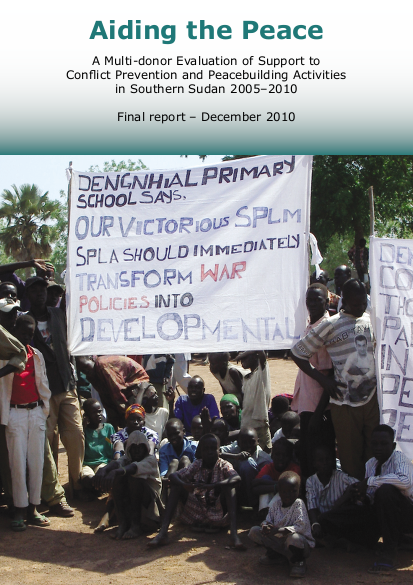
In October 2009, six United Nations agencies partnered with the governments of Belgium, Canada, Denmark, Germany, the Netherlands, Norway, Sweden, United Kingdom and the United States to conduct a joint evaluation of conflict prevention and peacebuilding activities in Southern Sudan.
The purpose of the joint evaluation was to generate guidance for future donor engagement by assessing the collective donor effort, rather than the programs and projects of individual donors. The review, which examined the period from 2005 to 2010, assessed USD $4 billion of program and project disbursements, USD $230 million of which was from CIDA.
This evaluation comes at a critical juncture for Southern Sudan, given its recent declaration of independent. The findings of the review are timely as they address key issues for the new state and its development partners.
The evaluation finds positive results in the reform of justice and security institutions, particularly through community-based security initiatives such as disarmament and conflict resolution. Mixed results are reported in the areas of socioeconomic development, good governance, and building a culture of justice, truth and reconciliation. Some aid programs did not sufficiently account for dynamic power relationships and drivers of conflict. Rather, donors tended to focus on administrative delivery and program implementation resulting in questionable contributions to conflict prevention and peacebuilding. Finally, the evaluation finds that donor coherence has deteriorated since 2005, as the focus on achieving peace has become less prominent on individual donor agendas.
In order to avoid the unintentional exacerbation of violence, the evaluation recommends the use of comprehensive conflict analysis for effective development. This includes, but is not limited to, the mapping of ethnic and political fault lines, awareness of elite manipulation in interventions, and developing possible post-conflict scenarios. In addition, donors should concentrate on security priorities by involving local government and civil society organizations.